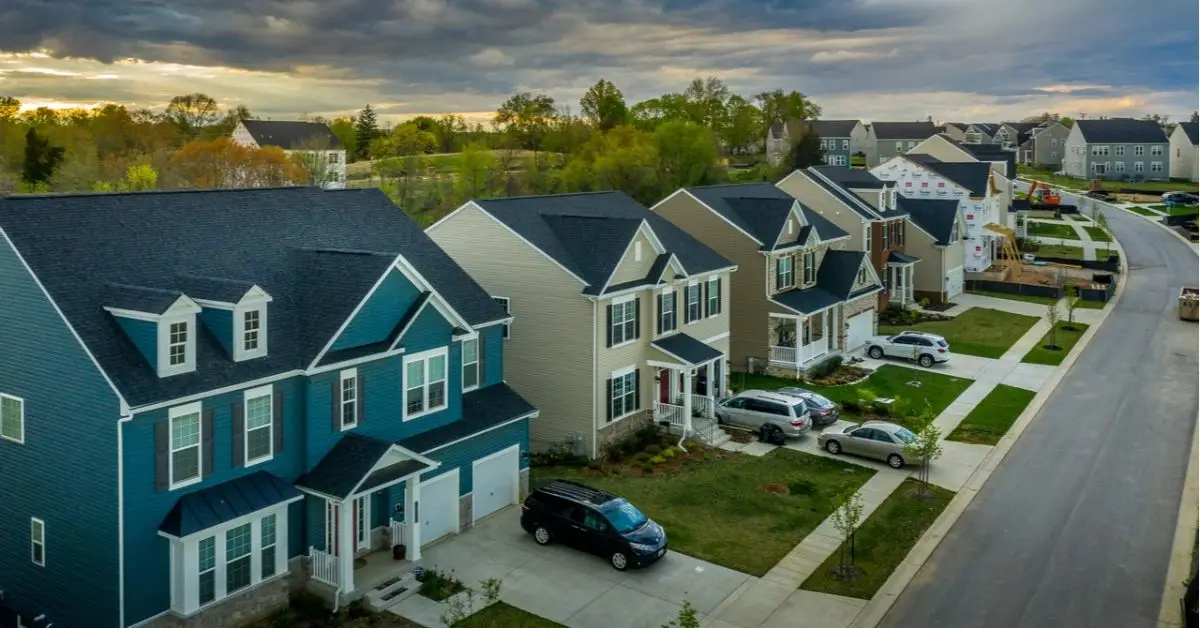4 Quick and Reliable Ways to Discover Your Home s True Market Value
Have you ever pondered the true value of your house? It can feel daunting, and I know I did the first time I considered selling. Real estate salespeople may provide widely disparate estimates, and prices on the internet can vary greatly.
The good news is that determining the true value of your house doesn’t have to be difficult or time-consuming. You may obtain a realistic number fast if you take the proper method.
In this post, I’ll show you four easy ways to quickly determine the value of your house that I’ve tried and tested, along with advice you won’t find on every blog.
You’ll know for sure at the end whether your house is overpriced, underpriced, or in the proper range.
1. Use a Free Online Estimate (Zillow, Redfin, Realtor.com, Trulia)
You can start by getting a quick, free assessment of the worth of your house. When it comes to making crucial decisions about selling, refinancing, or just figuring out the value of your home, it’s quick, easy, and helps you avoid guesswork.
How Online Tools Work
Automated Valuation Models (AVMs) are used by online platforms to determine the worth of homes. Here is what they take into account:
- Recent home sales in your neighborhood
- Local property tax records
- Size, number of bedrooms and bathrooms, and upgrades
- Current market trends in your area
Important: Location and home type affect accuracy. Compared to rural areas or unique properties, urban areas with a high volume of sales are typically more accurate.
Step-by-Step Guide to Getting Your Estimate
Take these actions to obtain the most accurate estimate:
-
Enter your property address
on each platform -
Update property details
like square footage, number of bedrooms and bathrooms, and any upgrades -
Compare results across multiple platforms
(Zillow, Redfin, Realtor.com, Trulia) -
Average the values
to get a more balanced baseline
Similar to the advice in our post on 11 Crucial Tips for Selling Your First Home, these estimates can also help you understand how minor improvements or repairs may impact your asking price if you’re getting ready to sell.
Pros and Cons
Advantages:
- Free and instant
- Easy to use for anyone
- Gives a quick ballpark number for decision-making
Cons:
-
Can be off by
5 10%
depending on location and property specifics - Unique or luxury homes may be underestimated
- Doesn t account for upcoming market shifts or neighborhood developments
Expert/Community Tip
A common recommendation among homeowners is:
To even out differences, average the estimates from Realtor.com, Redfin, Zillow, and Trulia.
2. Compare Recent Local Comps (Sold Properties)
Examining recent sales data provides a practical perspective on your home’s worth. While algorithmic predictions are a useful place to start, price based on adjacent properties that actually sold is frequently more accurate.
How to Find Comparable Properties
To determine which comparables (comps) are the best:
-
Use platforms like
Zillow, Redfin,
or your
local MLS
-
Look for homes sold in the
last 3 6 months
-
Pick properties with
similar size, condition, and location
In order to avoid depending on out-of-date or unnecessary data, the objective is to choose properties that accurately represent your market.
Step-by-Step Analysis
After locating comps, take the following actions:
-
Calculate price per square foot
for each property -
Adjust for differences
in upgrades, renovations, or overall condition -
Average 3 5 comps
to establish a realistic value range for your home
By using this technique, you may prevent overpricing or underpricing your home and assess how it fits into the current market.
Pros and Cons
Advantages:
-
Reflects
true market trends
-
More
reliable than purely algorithmic estimates
Cons:
-
Requires
manual research and calculation
-
May miss hidden factors like
upcoming developments or zoning changes
When comparing comparable properties, financial experts like Kiplinger advise looking into area amenities and seasonal affects. Nearby parks or schools can have a big impact on value, and a house sold in the winter might have a different price trend than one sold in the spring.
3. Get a Free CMA from a Local Realtor
A Comparative Market Analysis (CMA) provides you with an extremely accurate estimate by fusing human experience with computational data. This is a low-cost method of determining the true value of your house because many local brokers offer it for free as part of their lead generating.
What is a CMA?
A certified real estate agent’s complete report is called a CMA. Usually, it consists of:
-
Hand-picked comps
that closely match your property -
Analysis of
recent local sales trends
-
Adjustments for
property condition, upgrades, and neighborhood nuances
A CMA, in contrast to automated techniques, captures the human aspect of the market that cannot be captured by numbers alone. It’s wise to be aware of the factors that could affect the selling of your house before seeking a CMA. Common issues that buyers notice are covered in our piece on 7 Major Home Inspection Issues That Can Kill a Sale and How to Fix Them.
How to Request a CMA
Obtaining your CMA is simple:
-
Contact local agents
via email, website, or phone -
Provide key property details
such as size, bedrooms, bathrooms, and any upgrades -
Include
photos
to help agents assess your home -
Ask for a free CMA
many agents offer this without obligation as a marketing tool
Pros and Cons
Advantages:
-
High accuracy
due to professional insight -
Considers
market trends, seasonal effects, and neighborhood factors
- Offers a realistic range, not just a single number
Cons:
-
You may receive
follow-up calls or marketing emails
from agents -
Some adjustments can be
subjective
, depending on the agent s judgment
Bonus Tip
Use your CMA in conjunction with online resources for the most accurate estimate. You may get a comprehensive picture of your home’s worth by comparing the two methods.
4. Hire a Professional Appraiser
The most accurate way to ascertain the worth of your house is to hire a qualified appraiser. It offers a number that everyone can rely on and is frequently needed for funding, legal issues, or official records.
What Appraisers Do
Appraisers are more than just CMAs and internet estimations. Their procedure consists of:
-
In-person inspection
of your property -
Evaluating
condition, upgrades, size, and location
-
Comparing your home to
sold comps
and market data -
Producing a
formal report
recognized by lenders and courts
Cost and Timing
-
Typical cost:
$300 $600 -
Timeframe:
Usually 1 2 weeks for a full report
Pros and Cons
Advantages:
-
Highest accuracy
- Legally recognized for official purposes
- Removes guesswork from important financial or legal decisions
Cons:
- Paid service
-
More
time-consuming
than online tools or CMA
When to Hire an Appraiser
- Refinancing your mortgage
-
Resolving
disputes or divorce settlements
- Pre-sale documentation for banks or buyers
Smart Combo Strategy (What Most People Miss!)
Step 1 Start with Online Tools
-
Get a
quick baseline
from Zillow, Redfin, or Realtor.com -
Note the
high and low values
to understand the range
Step 2 Cross-Check with Local Comps
-
Adjust estimates using
recent local sales
-
Factor in
neighborhood amenities, upgrades, and market trends
Step 3 Optional Free CMA
-
Request a
CMA from a local realtor
if planning a sale or wanting more precision - Provides professional insight into local market nuances
Additionally, read Selling Your Home Yourself? if you’re thinking about selling your house yourself. Don’t even try until you’ve read these ten tips for avoiding typical mistakes.
Step 4 Hire an Appraiser if Needed
-
For
official, legal, or financial purposes
-
Ensures the value is
credible and recognized
by lenders or courts
Expert Tip / Social Proof
A typical Reddit recommendation:
Don’t depend on just one source. For optimal confidence, combine AVM, comps, and CMA.
Extra Tips to Maximize Accuracy
By following these guidelines, you may steer clear of typical blunders and make sure your house value estimate is as accurate as possible.
Update Home Details in Online Tools
-
Include
renovations
like a new roof, upgraded kitchen, or added rooms -
Accurate property info
directly impacts estimates
Consider Seasonal & Market Trends
-
Home prices
fluctuate by season
(spring vs. winter) -
Neighborhood developments
can affect your home s value
Avoid Common Pitfalls
-
Don t rely on
just one online tool
-
Never ignore
home condition or local growth factors
These useful pointers assist you in double-checking your estimations and avoiding expensive errors in judgment.
Quick Reference Table
You can rapidly select the best strategy with the help of this table, which provides an instant, practical summary of the primary techniques.
| Method | Cost | Accuracy | Time | Best Use Case |
|---|---|---|---|---|
| Online Estimate | Free | Medium | Instant | Quick baseline |
| Local Comps | Free | High | 30 60 min | Compare real sales |
| Free CMA | Free | Very High | 1 3 days | Sale prep, price validation |
| Appraiser | $300 $600 | Highest | 1 2 weeks | Legal, financing, official purposes |
Final Thoughts: Confidently Know Your Home s Value
Determining the true value of your house doesn’t have to be a guessing game. You can obtain a clear, quick, and accurate image by combining web estimates, local comparables, a free CMA from a reputable realtor, and a professional appraiser when necessary. Making ensuring your number is as accurate as possible requires updating your property facts, taking seasonal trends into account, and double-checking several sources.
What approach do you trust the most when determining the value of your house? I would love to know. Share your experience by leaving a comment below.
Visit Build Like New for more thorough instructions, professional guidance, and doable suggestions on purchasing, selling, or remodeling your house. At every stage, we are available to assist you in making informed decisions with confidence.
Disclaimer: This article’s content is solely intended for general educational purposes. The location, state of the market, and characteristics of the property can all affect home values. Before making any financial, legal, or real estate decisions, always get advice from a qualified expert.
Contents Table
-
1. Use a Free Online Estimate (Zillow, Redfin, Realtor.com, Trulia)
-
How Online Tools Work
-
Step-by-Step Guide to Getting Your Estimate
-
Pros and Cons
-
Expert/Community Tip
-
-
2. Compare Recent Local Comps (Sold Properties)
-
How to Find Comparable Properties
-
Step-by-Step Analysis
-
Pros and Cons
-
-
3. Get a Free CMA from a Local Realtor
-
What is a CMA?
-
How to Request a CMA
-
Pros and Cons
-
Bonus Tip
-
-
4. Hire a Professional Appraiser
-
What Appraisers Do
-
Cost and Timing
-
Pros and Cons
-
When to Hire an Appraiser
-
-
Smart Combo Strategy (What Most People Miss!)
-
Step 1 Start with Online Tools
-
Step 2 Cross-Check with Local Comps
-
Step 3 Optional Free CMA
-
Step 4 Hire an Appraiser if Needed
-
Expert Tip / Social Proof
-
-
Extra Tips to Maximize Accuracy
-
Update Home Details in Online Tools
-
Consider Seasonal & Market Trends
-
Avoid Common Pitfalls
-
-
Quick Reference Table
-
Final Thoughts: Confidently Know Your Home s Value
-
How Online Tools Work
-
Step-by-Step Guide to Getting Your Estimate
-
Pros and Cons
-
Expert/Community Tip
-
How to Find Comparable Properties
-
Step-by-Step Analysis
-
Pros and Cons
-
What is a CMA?
-
How to Request a CMA
-
Pros and Cons
-
Bonus Tip
-
What Appraisers Do
-
Cost and Timing
-
Pros and Cons
-
When to Hire an Appraiser
-
Step 1 Start with Online Tools
-
Step 2 Cross-Check with Local Comps
-
Step 3 Optional Free CMA
-
Step 4 Hire an Appraiser if Needed
-
Expert Tip / Social Proof
-
Update Home Details in Online Tools
-
Consider Seasonal & Market Trends
-
Avoid Common Pitfalls




